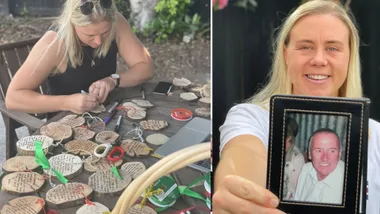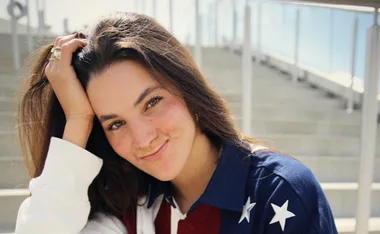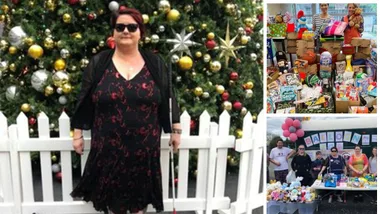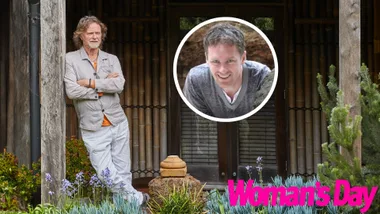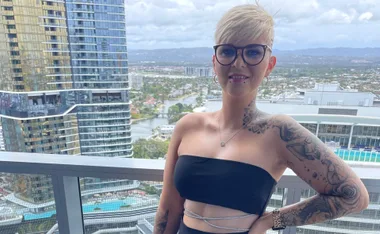Clan wars amongst tribes in Papua New Guinea have been well-documented throughout history, but now warfare in family homes is the all-pervasive issue causing shame in the mountains, jungles and cities of this beautiful island nation.
Some surveys suggest as many as 90% of women have experienced some form of family or sexual violence, and an estimated one in two women have been raped.
For many years this domestic violence has run unchecked, but now the tide of revolution is turning and changes are being made to create a less violent future.
Corporate lawyer and founding chairperson of the Coalition for Change, Lady Winifrid Kamit, grew up in the New Ireland Province of New Guinea and was not aware of the violence in the surrounding areas during her youth.
“When I was growing up it did exist but it was not as open as it is now,” recalls Lady Kamut. “It’s pandemic and shameful. Papua New Guinea looks peaceful from the outside, but not so in the home.”
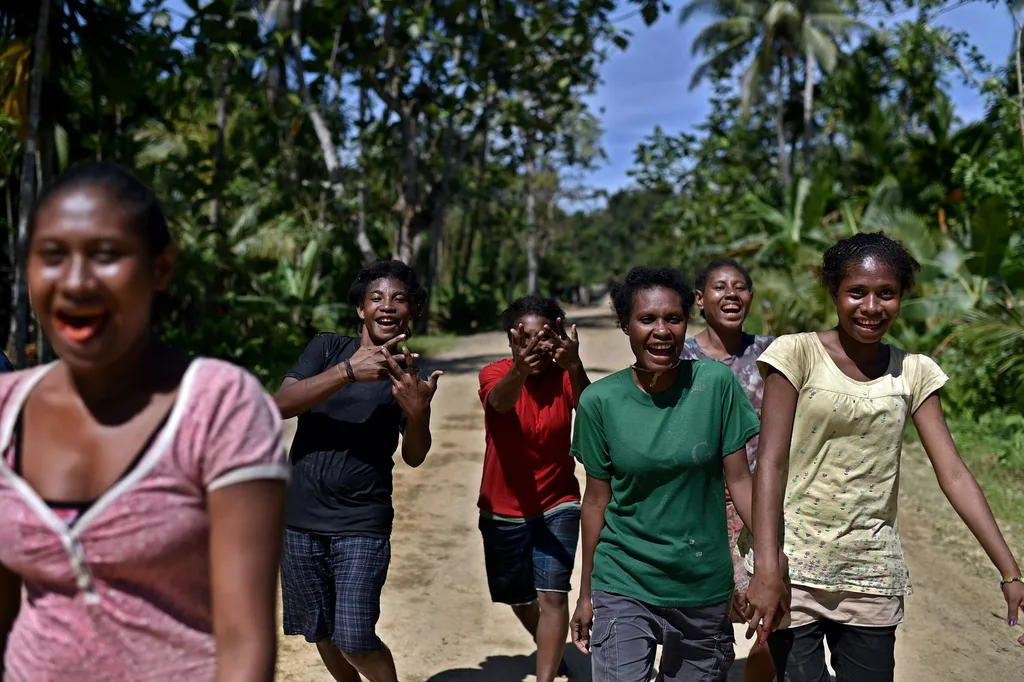
Getty
Whether the violence against women has escalated in the past 20 years or just slunk out from behind closed doors is difficult to say but an horrific event spurred Lady Kamit and women like herself into action in 2007.
“There was an incident where a woman was badly beaten and she lost her unborn child, and we decided that we should do something about that,” she recalls.
“A handful of women, including Dame Carol Kidu who was the Minister for Social Development and Family Services, met that very weekend and decided that we would do something about getting the attention of the government to treat this as a national issue.”
The Coalition for Change was born and in March 2000, after four years of lobbying, government legislation was finally changed to criminalise domestic violence, but law on paper is not enough to incite change.
“We need government agencies and enforcement agencies to make it work. We depend entirely on the attitudes of the enforcement agencies. We depend on everyone from politicians, right down to village leaders to make a difference,” tells Lady Kamit.
Papua New Guinea is Australia’s closest neighbour. With 800 different tribal groups and as many languages, Papua New Guinea has a wealth of culture and the region is equally rich in resources such as oil, gold, and natural gas.
These resources create great industry with local and international companies hiring thousands of locals, both men and women.
After experiencing how family and sexual violence affects the wellbeing and productivity of their workers, many of these companies are creating their own workplace strategies in order to allow their female workers to feel safe in speaking out against their aggressors, and unlike years gone by where they were persecuted for asserting themselves.
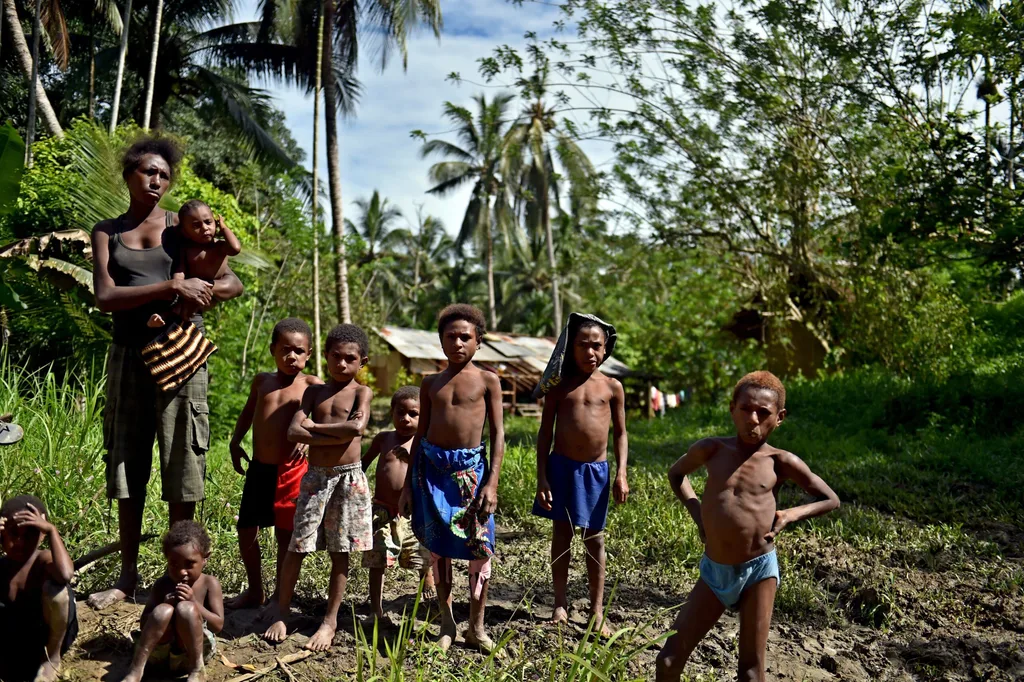
Getty
Local companies, Anitua and Oil Search, are just two of the companies making big changes and creating bespoke programs for their employees.
“Every person in Papua New Guinea is impacted by violence,” tells Anitua’s Elimination of Violence Against Women Program Manager, Dr Linda Van Leeuwin.
“Whether you’re a victim, or you fear violence. If it’s not you, it’s your sister who is in hospital, and she has lost her job because she has a broken arm and she was supporting the family. Everyone is impacted by the violence.”
Three years ago Kepari Leniata, 20, was tortured, killed and set alight by a mob in the Central Highlands. This prompted a national “House Cry”, a traditional mourning, where the nation stood up and said enough is enough. When Anitua was asked to sponsor the march, Linda Van Leeuwin realised that as a business they needed to do more.
“We started scratching around and came across the White Ribbon Association in Australia, and I lobbied and pitched to them for us to be able to participate in their White Ribbon Workplace program. We are the only company in PNG to be on their books and it’s just grown from there,” tells Van Leeuwin.
“We now have women coming and telling us that they need help,” she adds. “People get overwhelmed by how savage the problem is but if all we can do is make our workplaces safer for the women who work there and more supportive of them then that is huge.”
PNG has no welfare network in place so Anitua give their staff days off if they need special leave, or have to go to court, and also change rosters or positions if their workers feel unsafe due to a partner knowing their movements. They also offer loans for short term assistance if a woman needs help.
Anitua have ensured that their workers know they can be terminated for violence inside and outside of work. There is zero tolerance of violence, and maximum effort for female empowerment.
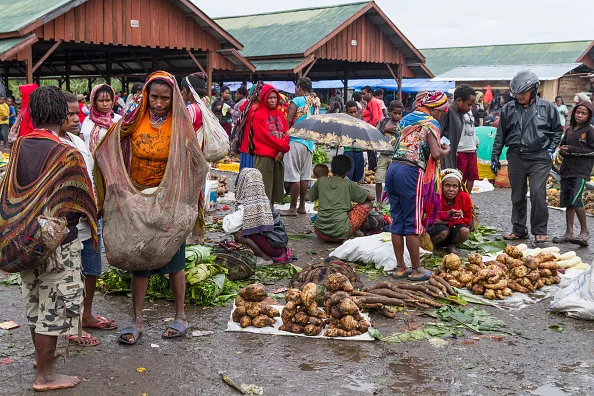
Getty
Oil Search has been working with women in the areas of health, leadership and education in PNG for a long time, but in 2015 they created a five year women’s empowerment strategy, and a family and sexual violence policy.
“We’re currently reviewing a domestic violence policy for the company and there is a second focus area called ‘Tools and Knowledge’ which is about providing Oil Search staff with the tools and knowledge to be agents of change in their workplaces, in their communities and within their homes,” tells the Head of Women’s Protection and Empowerment at the Oil Search Foundation, Jean Martin.
“Addressing family violence in any setting is tricky. Papua New Guinea is a very complex country with a whole range of cultural practices, but they are also moving through a really rapid growth with large parts of the population becoming urbanized,” she explains.
“What is really positive is there is a lot of really great work happening in PNG. A lot of people focused on critical solutions at both grass roots level like the women I meet in communities with very low literacy levels, right through to large corporate enterprises like Oil Search and some of our corporate partners who are right at the forefront of driving these changes internally whether it’s with their staff or the communities they’re operating in.”
The change in attitudes towards family and sexual violence will not be a short road, and large corporations and foundations may head the charge but village leaders must embrace the change and make men accountable also, because ultimately it’s about changing deeply ingrained beliefs of inequality.
The Digicel Foundation run an initiative entitled The Men of Honour Awards whereby amazing men doing things to combat violence within their communities are heralded and applauded.
The 2014 winner Jimmy Drekore worked hard with a great vision for his country.
“Through the Men of Honour campaign I’ve taken my awareness to youth and young adults in the various secondary schools and Universities in Simbu and Goroka Province,” said Jimmy. “It’s my vision to mold a younger generation who are instilled with good values such as integrity, honour and courage, who, in turn will influence the generation after them as we all work together to overcome violence in our country.”
With education programs in highschools, and representatives of the Coalition for Change hoping to take their program to the villages hopefully it is just a matter of time before the message is impressed that family and sexual violence is not a just cultural issue, it’s an issue of human rights.





